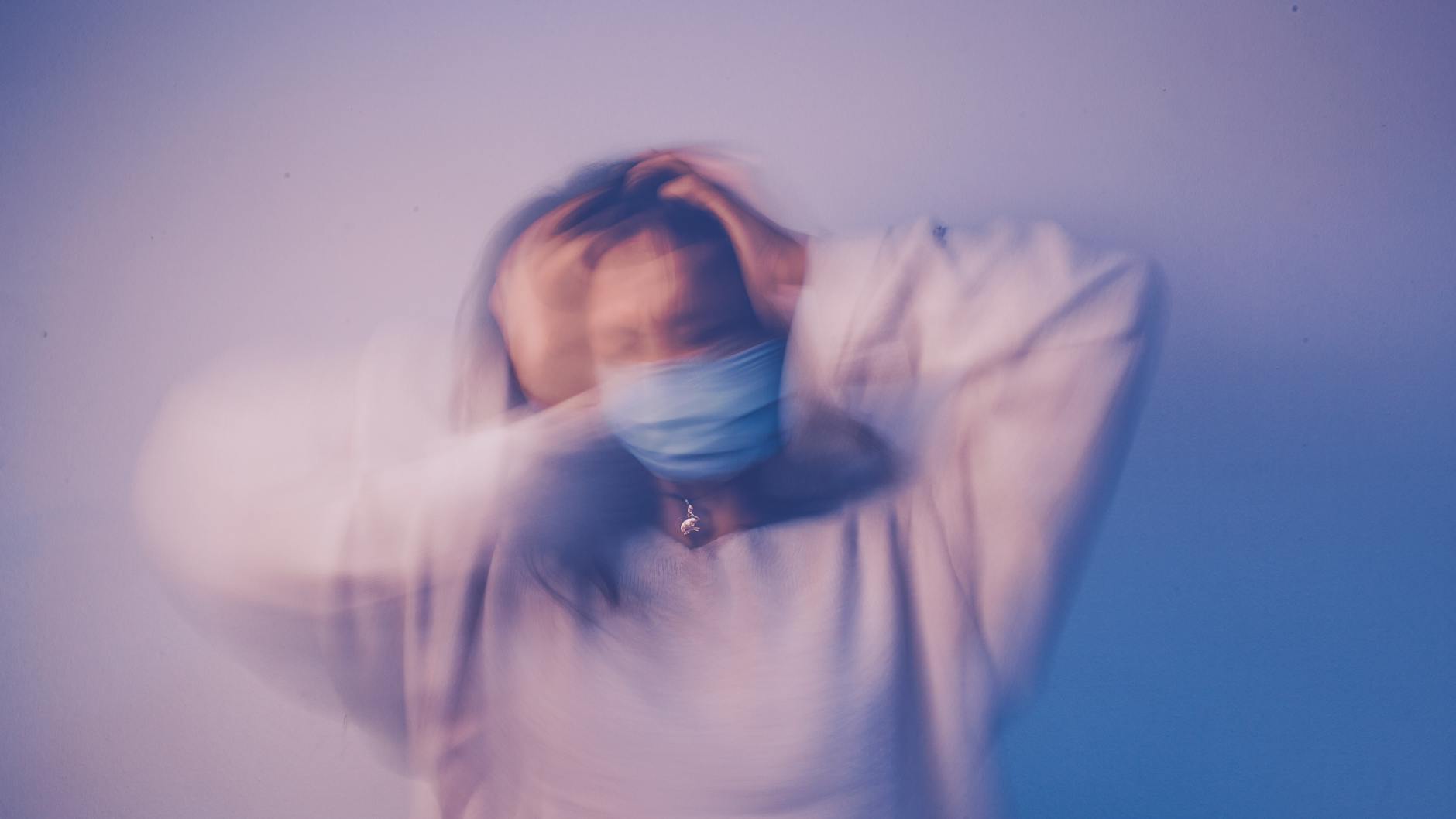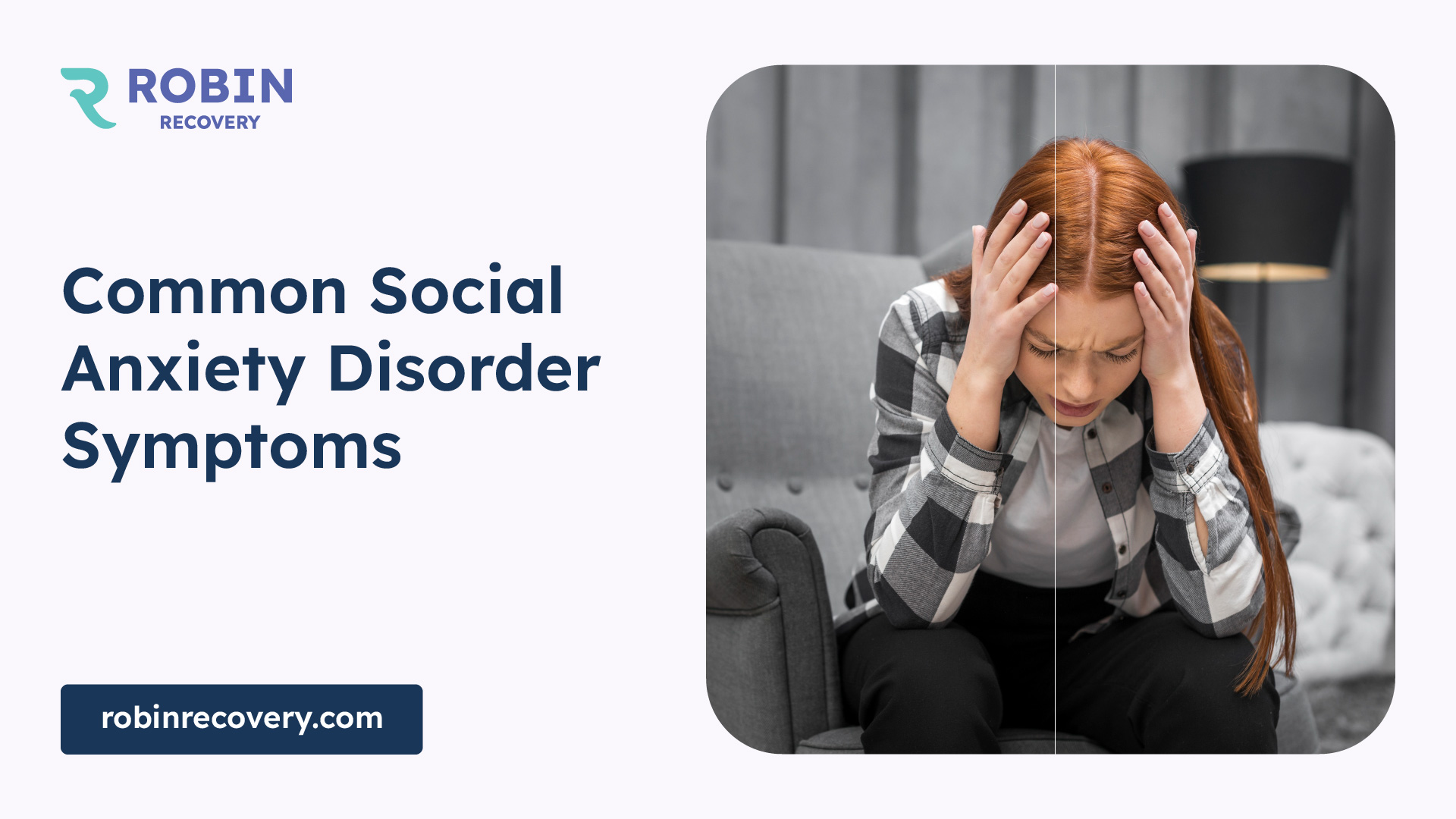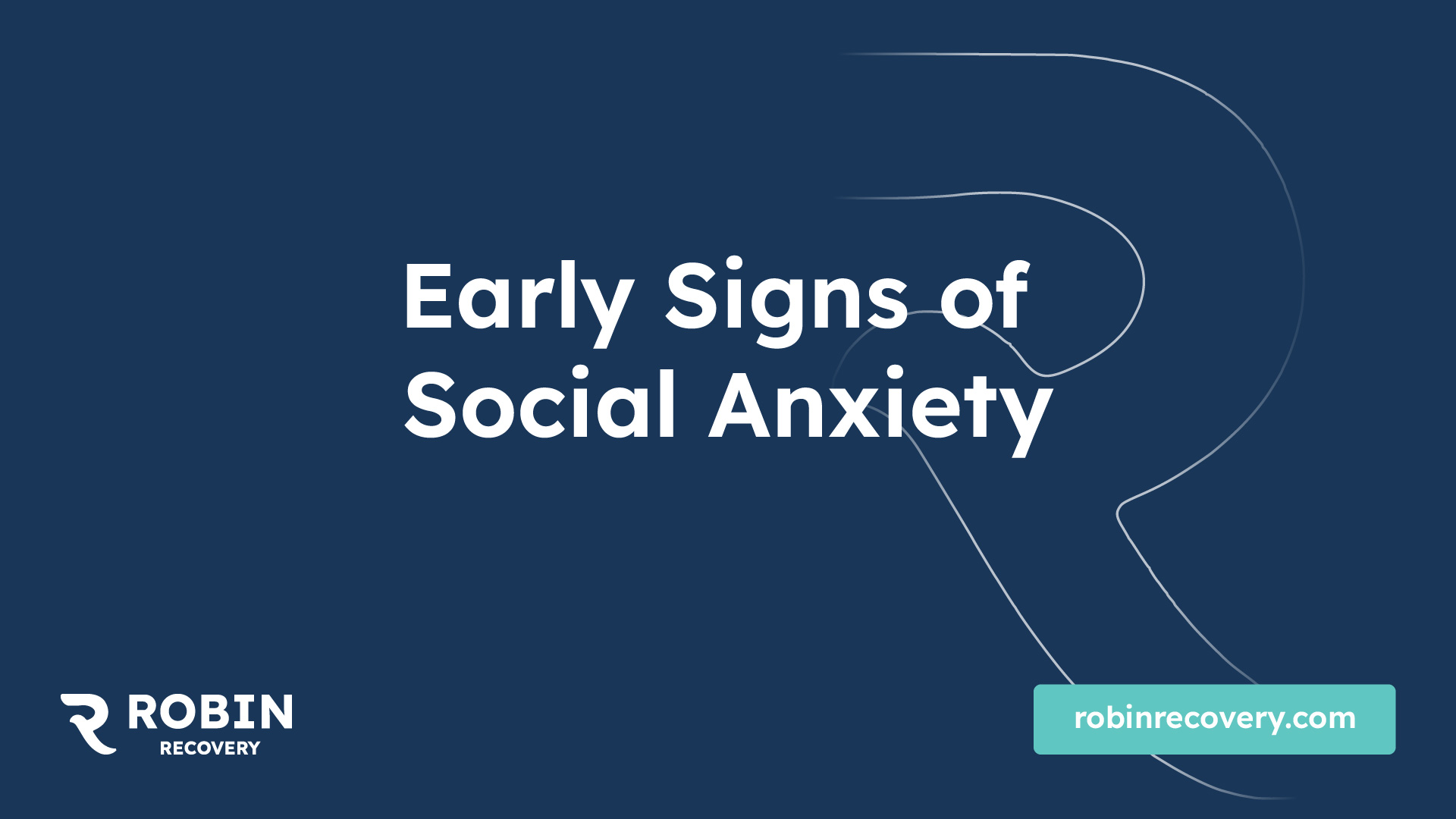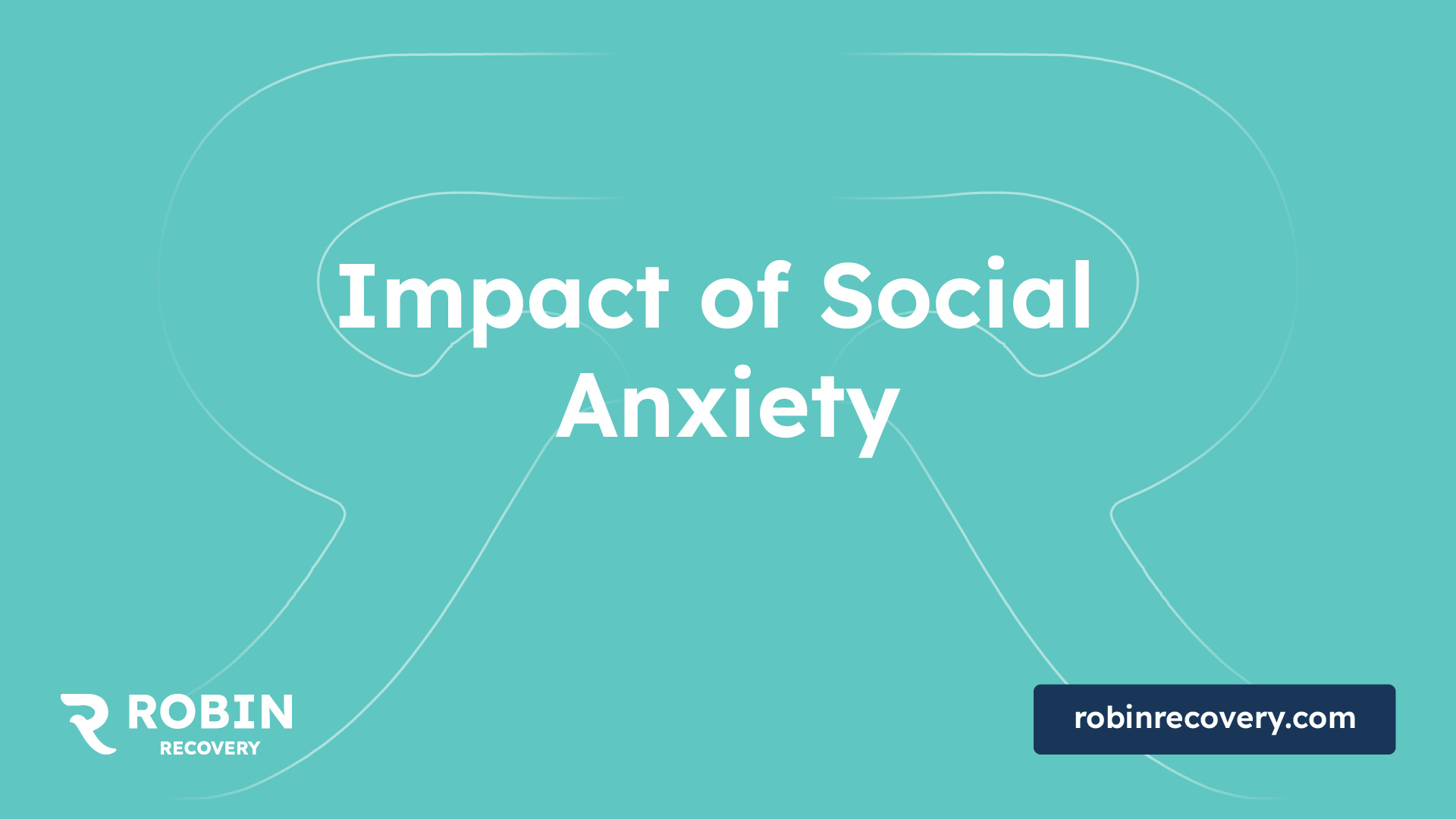Common Social Anxiety Disorder Symptoms

Understanding Social Anxiety Disorder
Onset and Demographics
Social Anxiety Disorder (SAD) often begins in childhood or adolescence, typically manifesting during the early to mid-teens. While it can emerge in younger children or adults, most individuals experience the onset before their 20s. Factors contributing to the onset of social anxiety may include significant life events, such as moving to a new school or experiencing bullying.
Demographically, research indicates that people assigned female at birth (AFAB) experience higher rates of social anxiety compared to their male counterparts. This disparity suggests that gender may play a role in the prevalence and experience of social anxiety.
Demographic FactorDescriptionTypical Age of OnsetEarly to mid-teensHigher PrevalencePeople assigned female at birth (AFAB)Factors Influencing OnsetSignificant life events, bullying

Common Symptoms Overview
Common symptoms associated with social anxiety disorder can be categorized into emotional, cognitive, and physical manifestations. Individuals may experience intense fear or anxiety surrounding social situations, fearing judgment or embarrassment. Understanding these symptoms is crucial for identifying and managing the disorder effectively.
Emotional and Cognitive Symptoms
Physical Symptoms
Physical reactions to social anxiety may include:
To learn more about the telltale signs of high-functioning anxiety & how to deal with it, individuals are encouraged to seek knowledge on recognizing and addressing symptoms effectively. Understanding the common symptoms can aid in early intervention and treatment options, including psychotherapy and medication [3].
Early Signs of Social Anxiety
Recognizing the early signs of social anxiety can help in understanding and addressing the condition effectively. These signs often manifest in childhood and may also include various physical symptoms.

Childhood Symptoms
In children, signs of social anxiety can be observed through various behaviors in social situations. Typical manifestations may include:
Such behaviors indicate a significant fear related to social interactions, which can resemble extreme shyness. If left unaddressed, these symptoms may persist as the child grows older. For a comprehensive overview of anxiety symptoms, check our article on telltale signs of high-functioning anxiety & how to deal with it.
Physical Manifestations
Individuals with social anxiety disorder might experience physical symptoms that can interfere with daily life. Common physical manifestations include:
SymptomDescriptionBlushingExcessive reddening of the faceSweatingIncreased perspiration in social settingsShakingTremors in hands or voiceNauseaUpset stomach during social interactionsRapid heartbeatIncreased heart rate when anxious
These physical symptoms often occur when facing situations that may lead to embarrassment. Individuals may experience overwhelming concern about being perceived as boring, incompetent, or stupid during social interactions [4]. The severity of these symptoms can lead to avoidance of work, school, or even essential everyday activities.
Understanding these early symptoms is crucial for recognizing social anxiety disorder and seeking help when necessary. For further reading on potential complications, visit our section on anxiety and addiction.
Impact of Social Anxiety
Social anxiety disorder can have significant effects on an individual's daily life as well as long-term consequences if not addressed properly.

Daily Challenges
Individuals with social anxiety face numerous daily challenges. They often experience pervasive feelings of stress in social situations, which can manifest physically through symptoms like rapid heartbeat, nausea, and dizziness. These symptoms can create a cycle of avoidance, leading individuals to steer clear of social interactions, thereby worsening their condition.
ChallengeDescriptionStressConstant worry in social settings.Physical SymptomsRapid heartbeat, nausea, dizziness.AvoidanceSteering clear of social interactions or events.Relationship StrainDifficulty establishing and maintaining relationships.
As a result of these challenges, many individuals develop feelings of isolation and loneliness. They may also struggle with low self-esteem and negative self-image, leading to further emotional difficulties.
Long-Term Effects
The long-term effects of untreated social anxiety disorder can be debilitating. Affected individuals risk poor educational outcomes and declining job performance, which can lead to lower-quality relationships and an overall decreased quality of life [6]. Furthermore, untreated anxiety can increase the likelihood of developing additional mental health issues, such as major depression and alcohol use disorder.
Long-Term EffectPotential OutcomesPoor Educational OutcomesChallenges with focus and participation in academic settings.Declining Job PerformanceDifficulty in workplace interactions; missed opportunities.Lower Quality RelationshipsStrained or nonexistent relationships due to fear and avoidance.Increased Risk of DepressionHigher likelihood of developing major depression.Substance Use IssuesPotential for alcohol use disorder as a coping mechanism.
Proactive management through treatment options like cognitive behavioral therapy and medication can help mitigate these long-term impacts. Individuals should consider seeking help if they exhibit common social anxiety disorder symptoms to prevent worsening conditions and promote emotional well-being.
Managing Social Anxiety
Addressing social anxiety is essential for individuals seeking to improve their quality of life. Seeking professional help and exploring various treatment options can significantly aid in managing the symptoms of social anxiety disorder.
Seeking Professional Help
Individuals experiencing symptoms of social anxiety disorder should consult a doctor or mental health professional, especially if they find themselves fearing and avoiding normal social situations due to feelings of embarrassment, worry, or panic. Recognizing these feelings is the first step in obtaining appropriate help. Studies show that symptoms of social anxiety disorder can fluctuate over time, often exacerbated by life changes or stressors.
Professional guidance can provide tailored strategies to cope with anxiety and help uncover underlying causes. In particular, engaging with a therapist can empower individuals to confront and understand their fears.
Treatment Options
A range of treatment options is available for managing social anxiety disorder effectively.
Treatment TypeDescriptionCognitive Behavioral TherapyThis form of psychotherapy helps individuals change harmful thinking and behavioral patterns.MedicationAntidepressants such as SSRIs and SNRIs can be effective in managing anxiety symptoms.Beta-blockersUseful for reducing physical symptoms such as rapid heartbeat during anxiety-provoking situations.BenzodiazepinesThese can offer short-term relief from acute anxiety, but should be used cautiously.Support GroupsSharing experiences in a supportive environment can boost confidence and provide helpful strategies.Lifestyle ChangesMaintaining adequate sleep, exercise, and a healthy diet can contribute to better management of symptoms.
Cognitive Behavioral Therapy (CBT) is widely recognized as one of the most effective treatments for social anxiety disorder [2]. In many cases, a combination of psychotherapy and medication may yield the best results.
Untreated social anxiety disorder can lead to diminished educational performance, decreased job effectiveness, and strained relationships. Individuals may also be at risk of developing additional issues such as major depression or substance use disorders. Prompt treatment can facilitate significant improvements in quality of life and alleviate the burden of social anxiety.
Social Anxiety and Co-Occurring Conditions
Social Anxiety Disorder (SAD) often does not occur in isolation. Many individuals with this condition may experience other psychiatric disorders or engage in substance use as a coping mechanism. Understanding these co-occurring conditions is vital for effective treatment and management.
Comorbidities
Individuals with social anxiety disorder frequently experience comorbidity with other psychiatric conditions. Common co-occurring disorders include:
Comorbid ConditionDescriptionMajor DepressionFeelings of persistent sadness, loss of interest, and hopelessness. Individuals may struggle to engage in social situations due to both anxiety and depressive symptoms. (Cleveland Clinic)Affective DisordersThis includes a range of mood disorders, which can exacerbate feelings of anxiety and lead to avoidance behaviors. (NCBI Bookshelf)Nicotine DependenceIndividuals may use nicotine to cope with anxiety symptoms, leading to a cycle of dependence that is hard to break. (NCBI Bookshelf)Substance Use DisorderThere is a significant overlap between social anxiety and substance use, as individuals may try to self-medicate their symptoms. This can lead to a full-blown addiction. (Cleveland Clinic)
The presence of these comorbidities can complicate the treatment process. Addressing both social anxiety and any additional disorders is crucial for achieving lasting recovery.
Substance Use and Social Anxiety
Individuals with social anxiety may turn to drugs or alcohol as a way to alleviate their symptoms in social situations. This reliance often creates a cycle where substance use becomes a temporary fix, but can ultimately lead to potential addiction. Some key points related to this issue include:
Understanding the connection between social anxiety and co-occurring conditions is essential for developing effective coping strategies. Individuals facing these challenges should explore professional help and customized treatment options to manage their symptoms. For more information, see our articles on self-medicating an anxiety disorder and anxiety and addiction.
Addressing Social Anxiety Effectively
Multiple strategies exist for effectively managing social anxiety disorder. The two primary approaches include Cognitive Behavioral Therapy and medication.
Cognitive Behavioral Therapy
Cognitive Behavioral Therapy (CBT) is a well-established method for treating social anxiety disorder. This therapeutic approach helps individuals identify and alter harmful thinking and behavioral patterns, facilitating improved responses to stress and anxiety. CBT often incorporates techniques such as exposure therapy, which gradually exposes individuals to social situations they fear, thereby reducing avoidance behaviors.
Research suggests that CBT can lead to significant improvements in symptoms of anxiety and stress NIMH. It typically involves several sessions with a trained therapist and might require ongoing practice and reinforcement at home.
Here's a summary of CBT components:
ComponentDescriptionIdentificationRecognizing negative and unhelpful thoughts about social situations.ChallengeLearning to challenge and reframe these thoughts in a more positive or realistic manner.ExposureGradually facing feared social situations to reduce anxiety over time.
CBT is recognized as one of the most effective treatments for addressing common social anxiety disorder symptoms.
Medication Strategies
Medication can also be a helpful component in the treatment of social anxiety disorder. Various options may be prescribed, including:
Combining therapy and medication has shown great efficacy in treating social anxiety disorder. Patients are encouraged to consult healthcare professionals to establish an individualized treatment plan. For those managing anxiety alongside other issues such as addiction, understanding self-medicating an anxiety disorder is crucial to finding a balanced approach.
References
[2]:
[3]:
[4]:
[5]:
[6]:
[7]:
